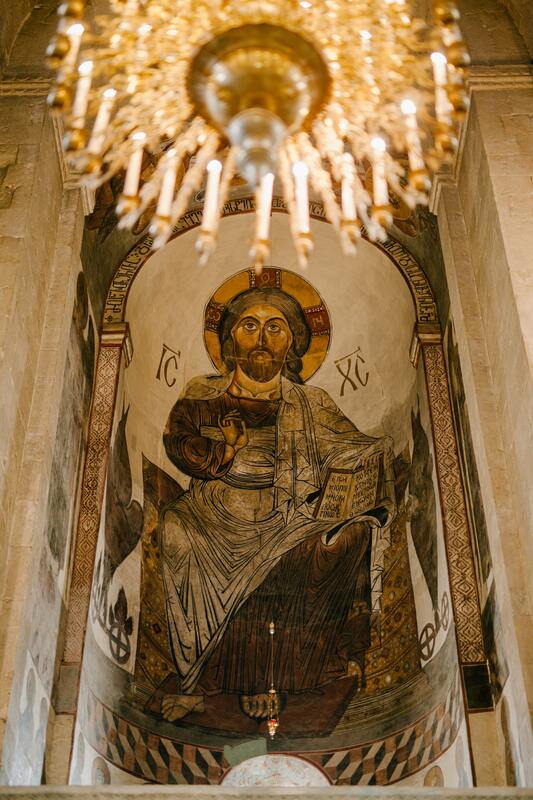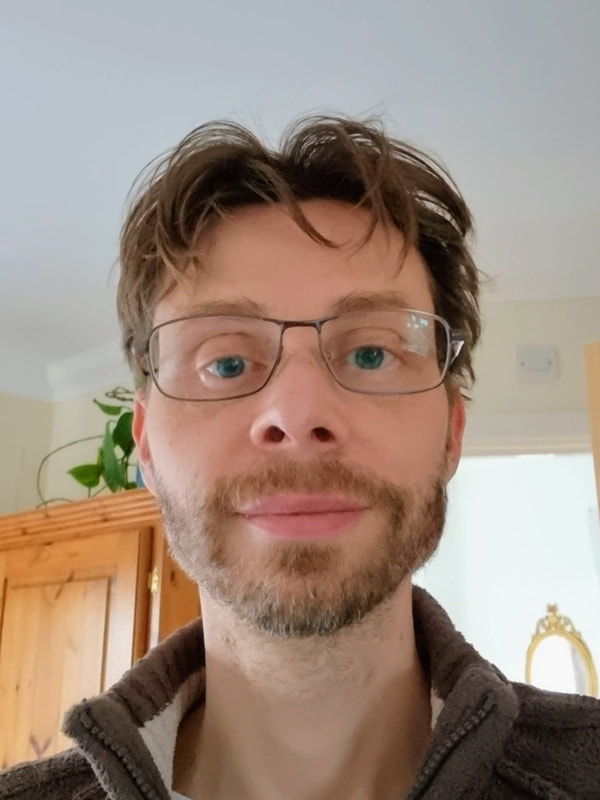|
Our Father, Perfect Love, We turn again to You. Guide us; help us to love, so that Your Will be done, on earth as in heaven. Give us this day that which we need. Fill us with hope and trust. Help us to forgive our brothers and sisters (and ourselves as well); and to look on them as you look on us. Give us strength to resist temptation. When we are tempted, let us choose peace. Deliver us from our fears. For what You love is safe. And Your love remains forever and always. Amen. Why, you might ask, would we want an alternative version of the Lord's Prayer?
Well, there are a couple of reasons why I felt moved to write this interpretation. First, no matter how inspired or inspiring words may be, there's a risk that with over-familiarity they may lose their power to stir and transform us. (Think of how moved you feel when you hear an amazing piece of music for the first time. You listen to it over and over again. As the days, weeks and months go by, the intensity of your response to the music may fade. You still like it, but it no longer inspires or affects you to the extent it did when you first heard it.) Adjusting the words may help us to engage with the prayer more deeply again. (To pick up the music analogy again, maybe you discover a fresh new cover of an old favourite song.) Second, for me, a prayer should be heart-felt. It should be authentic. How can I pray authentically using a set prayer if some of its words confuse me, or if I disagree with them? In the Lord's Prayer, there are a couple of things I struggle with:
5 Comments
"I am the true vine... "I am the true vine" (John 15:1) is one of several I am sayings featured in John's gospel. Many people interpret these sayings as Jesus making certain claims about himself... He, Jesus of Nazareth, is the true vine. He, Jesus of Nazareth, is the way, the truth and the life (John 14:6). And, by the way, "No one comes to the father except through me" (John 14:6 continued).
It feels to me that, when Jesus spoke in those terms, he was speaking of his innermost Identity, his eternal Self, or Spirit. We might call it the Christ Self, at one with God. It is the Self beyond birth and death; unlimited by time and space and eternally present: "Before Abraham was born, I am" (John 8:58). Jesus identified with his eternal Self. But the Christ Self isn’t limited to the person of Jesus, because the Christ Self has no limits. Jesus’ True Self is our True Self as well. Seen in that light, how might we interpret his words about the True Vine? To “remain” in the Christ Self is to abide in it. We might experience a state of “I am” awareness from time to time. Last week, a meditation facilitated by Eckhart Tolle helped to still my thinking mind and expand my identity beyond the small, temporal, self of Peter Parr - so that I spent an hour or so in the kingdom of heaven. But what if those excursions into Oneness became not the exceptions, but the norm? That would be remaining in the vine. “No branch can bear fruit by itself; it must remain in the vine. Neither can you bear fruit unless you remain in Christ-consciousness.” (Interpretation of John 15:4) “I [True Self] am the vine; you are the branches. If you remain in me [in a state of awareness of your True Self] and I in you, you will bear much fruit; apart from me you can do nothing.” (John 15:5) The fruit being referred to here is of the Spirit. In Paul’s letter to the Galatians, he writes of the fruits of the spirit as being "love, joy, peace, forbearance, kindness, goodness, faithfulness, gentleness and self-control" (Galatians 5:22-23). A similar list appears in A Course in Miracles, where characteristics of God's teachers are listed as trust, honesty, tolerance, gentleness, joy, defencelessness, generosity, patience, faithfulness and open-mindedness (Manual for Teachers, Section 4). We’re all branches in the same vine, so these are the fruit we each will bear - but only if we abide in the Vine so that Christ’s is the vision with which we see; His the one mind with which we think. “Come to me, all you who are weary and burdened, and I will give you rest.” As I interpret these words, Jesus is recalling us to the Christ Self – which He was and is, and which is our innermost Identity too. "Take my yoke upon you and learn from me, for I am gentle and humble in heart, and you will find rest for your souls." (Matthew 11:29) We are weary and burdened on a soul level – an inevitable consequence of believing we are separate individuals, apart from the Whole, doomed ultimately to wither and die. To borrow the analogy used in Chapter 15 of John’s gospel, we are living our lives as branches that have been cut from the vine. Sometimes, when working at my computer or carrying out some household task, I catch myself becoming impatient; wanting the task to be over so that I can move on to the next – more interesting – thing. Completion of the task has become my goal, and I’ve lost touch with my primary purpose, which is about my state of mind. My primary purpose can be described variously as being at peace; being whole; forgiveness (as understood in A Course in Miracles); coming to Christ; remembering my Self. Whenever I find myself getting impatient, hurrying, agitated or not at peace, it is time to pause, take a deep breath and, as John Butler advises, "feel my feet on the ground". Can I now resume the activity and be at peace? If not, it would be better to step away from the activity and give my mind space and time to return to stillness; to return to Christ. That is the yoke I yearn to take upon me. And it is my primary task. “I rest in God.” This thought will bring to you the rest and quiet, peace and stillness, and the safety and the happiness you seek. “I rest in God.” This thought has power to wake the sleeping truth in you, whose vision sees beyond appearances to that same truth in everyone and everything there is. Here is the end of suffering for all the world, and everyone who ever came and yet will come to linger for a while. Here is the thought in which the Son of God is born again, to recognize himself. In all three synoptic gospels (Mark, Matthew and Luke), Jesus is recorded as asking his disciples, "Who do people say that I am?"
The disciples' response demonstrates the extraordinary effect Jesus must have had on people who he met: "Some say [you are] John the Baptist; others say Elijah; and still others, Jeremiah or one of the prophets". At a stretch, confusing Jesus for John the Baptist could have been a case of mistaken identity: John was a contemporary of Jesus who had recently been executed. But Elijah or Jeremiah? These were prophets from centuries before whose lives were recorded in the Jewish scriptures! Did people really see Jesus as a somehow a re-embodiment of one of them? The gospel accounts then have Jesus put a direct question to his disciples: "Who do you say that I am?" It is Peter who answers, "Thou art the Christ, the Son of the living God". Jesus doesn't deny this, though in the accounts of Mark (which was the first of the surviving gospels to be written) and Luke, he does warn Peter not to speak about him to anyone - perhaps because he realised Peter's description would, very likely, be misunderstood. It isn't recorded in the gospels, but I wonder whether, at any time, Jesus may have asked his disciples another question: "Who do you say that you are?" If he had done, would any among them have responded in a similar way… "We are all Christ, all of us one Son of the living God"? Such a view would be seen as heresy by many Christians. But I can imagine Jesus's lips turning upwards into a smile if any of his disciples had uttered those words. Was the message of Jesus that he was different from the rest of us, but that we can save ourselves from punishment for our sins if we believe in his unique identity as Son of God? Or was it, perhaps, that we are not separate from one another, confined within perishable bodies; we are eternal spirit, creations of the One Spirit? Yes, we have wandered off awhile to make our own way, but one holy instant we will remember our Divine inheritance and - as prodigal sons and daughters - return Home to be welcomed back into our Father/Mother's loving embrace. |
AuthorPeter Parr: Quaker, writer and former member of the British minigolf team. (Actually those are all just roles I play. Words can't describe who any of us really are.)
|




 RSS Feed
RSS Feed


